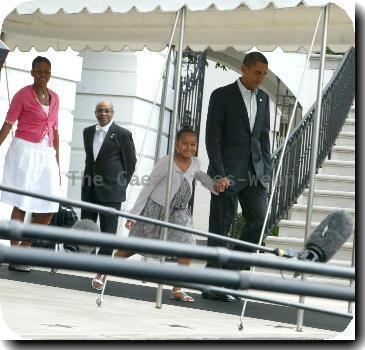Afghan leader: Afghanistan will need international military aid for at least 15 years
By Anne Flaherty, APTuesday, December 8, 2009
Afghan leader: Help needed to pay for larger army
KABUL — After meeting Tuesday with U.S. Defense Secretary Robert Gates, Afghan President Hamid Karzai said it may be five years before his army is ready to take on insurgents — a blunt warning that the planned exit strategy for U.S. troops from Afghanistan 18 months from now could grind slowly through 2014.
Karzai also said it will be at least 15 years before his government can bankroll a security force strong enough to protect the country from the threat of insurgency.
Karzai’s statements, along with Gates’ agreement that the U.S. drawdown starting in July 2011 would be “a several-year process,” appeared to firm up growing evidence that President Barack Obama’s proposed troop pullout would be a slow-motion reverse of the rapid escalation of 30,000 troops carried out over the next six months.
Gates voiced “hope that we not only could meet the timelines that President Karzai has laid out, but that as more Afghans are trained we will be able to beat those timelines.”
But even the hopeful timelines Gates suggested would entail American troops remaining in Afghanistan for several years well beyond the July 2011 start that Obama detailed last week.
“Whether it’s three years or two years or four years remains to be seen,” the defense secretary said. “But as President Obama has made clear, this is not an open-ended commitment on the part of the United States.”
Karzai’s comments come a week after President Barack Obama’s announcement that while the U.S. was sending 30,000 more troops, they will start coming home in 18 months.
The top U.S. military commander in Afghanistan, Gen. Stanley McChrystal, has set the goal of building the Afghan security force to 400,000 by 2013 — up from roughly 94,000 Afghan police officers and 97,000 soldiers.
When asked whether he would be able to sustain a larger Afghan force, Karzai said financial backing from the international community would be needed for years.
“For a number of years, maybe for another 15 to 20 years, Afghanistan will not be able to sustain a force of that nature and capability with its own resources,” Karzai said.
Gates, the first member of Obama’s Cabinet to visit Afghanistan since the president’s announcement, said he and Karzai discussed how to recruit more Afghan soldiers and police to battle militants. “There is a realism on our part that it will be some time” before the Afghan security forces can stand on their own, he said.
Gates has sought to assure the Afghans that the U.S. won’t abandon them, but at the same time impose a sense of urgency.
“On a gradual, conditions-based premise, we will be reducing our forces after July of 2011,” Gates said.
Gates also addressed a fear among the Afghan people that more troops in their country will result in more violence and civilian casualties.
“Our top priority remains the safety of civilians,” he said.
Just before the two leaders spoke, the Afghan government accused NATO forces of killing civilians during a pre-dawn strike Tuesday in eastern Afghanistan.
NATO said seven militants were killed, but no civilians were injured or killed. A spokesman for the Afghan Interior Ministry said some civilians died in the attack aimed at a Taliban operative in Laghman province. Provincial police chief Gen. Abdul Karim Omeryar said 12 Afghans died, including one woman.
During the press conference, Karzai reaffirmed his commitment to fight corruption. The president, who won re-election to a second term in a ballot marred by fraud, is under intense international pressure to nominate a slate of reformists, and it will be the first test of his willingness to meet his pledge to reform the government.
Karzai said he was ready to send parliament 40 percent of his Cabinet nominees now, but that he would meet lawmakers’ demand to send a full, not partial, list to the assembly. He said he would send the full list to the parliament next Tuesday or Wednesday or earlier. He said ministers with proven track records of service would remain in the Cabinet, although he did not say if they would stay in their same posts.
Karzai has repeatedly argued that while there is corruption in the Afghan government, there is also corruption within international contracting processes.
Gates said the U.S. and other international partners bore some responsibility because the billions of dollars the international community has been spending in Afghanistan has enabled a climate of corruption.
“I think President Karzai has taken responsibility for dealing with the problem in so far as the Afghans are concerned,” Gates said. “We have to do what we can do to help make it more difficult for people to misbehave.”
Tags: Afghanistan, Asia, Barack Obama, Central Asia, Collateral Damage, Europe, Kabul, North America, United Kingdom, United States, War Casualties, Western Europe







